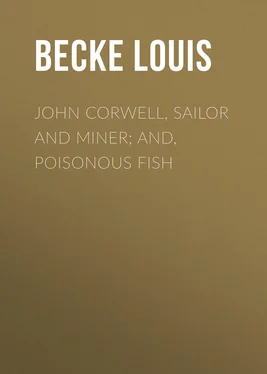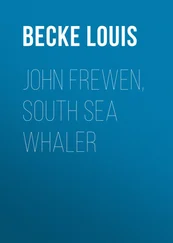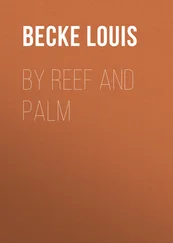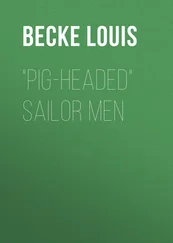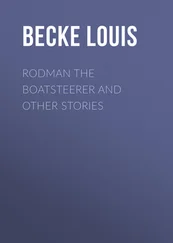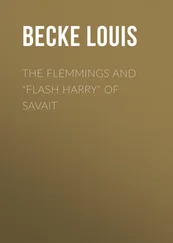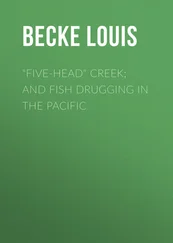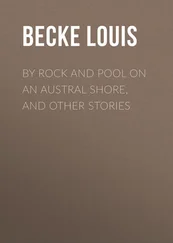Louis Becke - John Corwell, Sailor And Miner; and, Poisonous Fish
Здесь есть возможность читать онлайн «Louis Becke - John Corwell, Sailor And Miner; and, Poisonous Fish» — ознакомительный отрывок электронной книги совершенно бесплатно, а после прочтения отрывка купить полную версию. В некоторых случаях можно слушать аудио, скачать через торрент в формате fb2 и присутствует краткое содержание. Жанр: foreign_prose, literature_19, foreign_antique, на английском языке. Описание произведения, (предисловие) а так же отзывы посетителей доступны на портале библиотеки ЛибКат.
- Название:John Corwell, Sailor And Miner; and, Poisonous Fish
- Автор:
- Жанр:
- Год:неизвестен
- ISBN:нет данных
- Рейтинг книги:4 / 5. Голосов: 1
-
Избранное:Добавить в избранное
- Отзывы:
-
Ваша оценка:
- 80
- 1
- 2
- 3
- 4
- 5
John Corwell, Sailor And Miner; and, Poisonous Fish: краткое содержание, описание и аннотация
Предлагаем к чтению аннотацию, описание, краткое содержание или предисловие (зависит от того, что написал сам автор книги «John Corwell, Sailor And Miner; and, Poisonous Fish»). Если вы не нашли необходимую информацию о книге — напишите в комментариях, мы постараемся отыскать её.
John Corwell, Sailor And Miner; and, Poisonous Fish — читать онлайн ознакомительный отрывок
Ниже представлен текст книги, разбитый по страницам. Система сохранения места последней прочитанной страницы, позволяет с удобством читать онлайн бесплатно книгу «John Corwell, Sailor And Miner; and, Poisonous Fish», без необходимости каждый раз заново искать на чём Вы остановились. Поставьте закладку, и сможете в любой момент перейти на страницу, на которой закончили чтение.
Интервал:
Закладка:
Louis Becke
John Corwell, Sailor And Miner; and, Poisonous Fish / 1901
I
“Am I to have no privacy at all?” demanded the Governor irritably as the orderly again tapped at the open door and announced another visitor. “Who is he and what does he want?”
“Mr. John Corwell, your Excellency, master of the cutter Ceres , from the South Seas.”
The Governor’s brows relaxed somewhat. “Let him come in in ten minutes, Cleary, but tell him at the same time that I am very tired—too tired to listen unless he has something of importance to say.”
The day had indeed been a most tiring one to the worthy Governor of the colony of New South Wales, just then struggling weakly in its infancy, and only emerging from the horrors of actual starvation, caused by the utter neglect of the Home authorities to send out further supplies of provisions. Prisoners of both sexes came in plenty, but brought nothing to eat with them; the military officers who should have helped him in his arduous labours were secretly plotting against him, and their spare time—and they had plenty—was devoted to writing letters home to highly-placed personages imploring them to induce the Government to break up the settlement and not “waste the health and lives of even these abandoned convicts in trying to found a colony in the most awful and hideous desert the eye of man had ever seen, a place which can never be useful to man and is accursed by God.” But the Governor took no heed. Mutiny and discontent he had fought in his silent, determined way as he fought grim famine, sparing himself nothing, toiling from dawn till dark, listening to complaints, remedying abuses, punishing with swift severity those who deserved it, and yet always preserving the same cold, unbending dignity of manner which covered a highly-sensitive and deeply sympathetic nature.
But on this particular day, fatigue, the intense heat, which had prevailed, a violent quarrel between the intriguing major commanding the marines, and many other lesser worries, had been almost more than he could bear, so it may well be imagined that he was more inclined for rest than talk.
Ten, twenty minutes, and then the thin, spare figure raised itself wearily from the rude sofa. He must see his visitor. He had promised to do so, and the sooner it was over the better. He called to the orderly.
“Tell Mr.—Corwell you said?—to come in.”
A heavy step sounded on the bare floor, and one ot the finest specimens of manhood Governor Arthur Phillip had ever seen in all his long naval career stood before him and saluted. There was something so pleasant and yet so manly in the handsome, cleanshaven and deeply-bronzed face, that the Governor was at once attracted to him.
“Be seated, Mr. Corwell,” he said in his low, yet clear tones. “I am very tired, so you must not keep me long.”
“Certainly not, your Excellency. But I thought, sir, that you would prefer to hear the report of my voyage personally. I have discovered a magnificent harbour north of the Solomon Islands, and–”
“Ha! And so you came to me. Very sensible, very sensible of you. I am obliged to you, sir. Tell me all about it.”
“Certainly, your Excellency; but I regret I have intruded on you this evening. Perhaps, sir, you will permit me to call again to-morrow?”
“No, no, not at all,” was the energetic reply. I am always ready to hear anything of this nature.
“I knew that, sir, for the masters of the Breckenbridge and another transport told me that you were most anxious to learn of any discoveries in the Pacific Islands.”
“Very true, sir. I am looking forward to hear from them and from the masters of other transports which I am inducing to follow the whale fishery on their return voyage to England via Batavia. But so far I have heard nothing from any one of them.”
Encouraged and pleased at the Governor’s manner, the master of the Ceres at once produced a roughly executed plan and a detailed written description of the harbour, which, he asserted with confidence, was one of the finest in that part of the Pacific. A broad, deep stream of water ran from the lofty range of mountains which traversed the island north and south and fell into a spacious bay, on the shores of which was a large and populous native village, whose inhabitants had treated Cornell and the few men of his ship’s company with considerable kindness, furnishing them not only with wood and water, but an ample supply of fresh provisions as well.
During the two weeks that the Ceres lay at anchor, Corwell and two or three of his hands unhesitatingly trusted themselves among the natives, who escorted them inland and around the coast. Everywhere was evidence of the extraordinary fertility of the island, which, in the vicinity of the seashore, was highly cultivated, each family’s plantation being enclosed by stone fences, while their houses were strongly built and neatly constructed. The broad belt of the slopes of the mountains were covered with magnificent timber, which Corwell believed to be teak, equal in quality to any he had seen in the East Indies, and which he said could be easily brought down to the seashore for shipment owing to there being several other large streams beside the one on whose banks the principal village was built.
The Governor was much interested, and complimented the young seaman on the manner in which he had written out his description of the place and his observations on the character and customs of the inhabitants.
“Such information as you have given me, Mr. Corwell, is always valuable, and I give you my best thanks. I wish I could do more; and had I the means, men, and money to spare I should send a vessel there and to other islands in the vicinity to make further examination, for I believe that from those islands to the northward we can obtain invaluable food supplies in the future. The winds are more favourable for making a quick voyage there and back than they are to those groups to the eastward; but,” and here he sighed, “our condition is such that I fear it will be many years ere His Majesty will consent to such an undertaking. But much may be done at private cost—perhaps in the near future.”
The young man remained silent for a moment or two; then with some hesitation he said, as he took a small paper packet from his coat pocket and handed it to the Governor, “Will your Excellency look at this and tell me what it is. I—I imagine it is pure gold, sir.”
“Gold, gold!” and something like a frown contracted the Governor’s pale brows; “ever since the settlement was formed I’ve been pestered with tales of gold, and a pretty expense it has run me into sending parties out to search for it. Why, only six months ago a rascally prisoner gulled one of my officers into letting him lead an expedition into the bush—the fellow had filed down a brass bolt—” he looked up and caught sight of the dark flush which had suddenly suffused his visitor’s face—“but I do not for a moment imagine you are playing upon my credulity, Mr. Corwell.”
He untied the string and opened the packet, and in an instant an exclamation of astonishment and pleasure escaped as he saw that the folds of paper held quite three ounces of bright and flaky water-worn gold.
“This certainly is gold, sir. May I ask where you obtained it?”
“I made the voyage to Sydney Cove to tell your Excellency of two discoveries—one was of the fine harbour, the other was of this gold, which my wife (who is a native of Ternate) and myself ourselves washed out of the bed of a small stream; the natives helped us, but attached not the slightest value to our discovery. In fact, sir, they assured us as well as they could that much more was to be had in every river on the island.”
Читать дальшеИнтервал:
Закладка:
Похожие книги на «John Corwell, Sailor And Miner; and, Poisonous Fish»
Представляем Вашему вниманию похожие книги на «John Corwell, Sailor And Miner; and, Poisonous Fish» списком для выбора. Мы отобрали схожую по названию и смыслу литературу в надежде предоставить читателям больше вариантов отыскать новые, интересные, ещё непрочитанные произведения.
Обсуждение, отзывы о книге «John Corwell, Sailor And Miner; and, Poisonous Fish» и просто собственные мнения читателей. Оставьте ваши комментарии, напишите, что Вы думаете о произведении, его смысле или главных героях. Укажите что конкретно понравилось, а что нет, и почему Вы так считаете.
